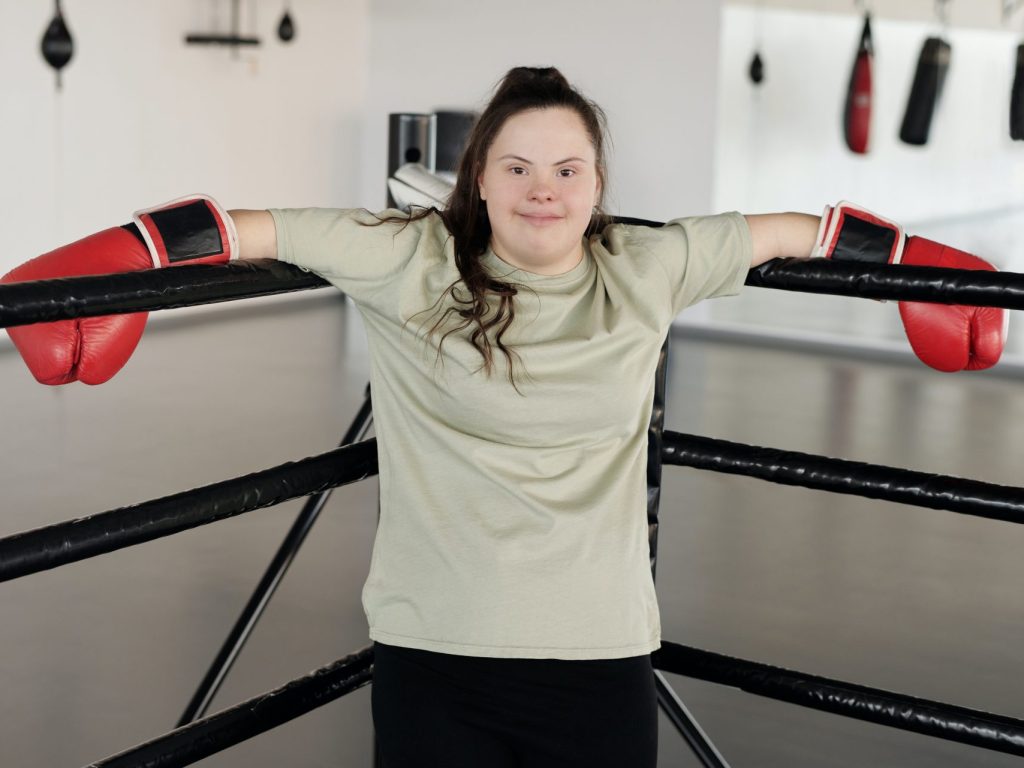Health and well-being of people with Down syndrome
In a US study, 284 people with Down syndrome were asked about their lives.[1] The study found that the overwhelming majority felt they led happy and fulfilling lives.
- 99% of people with Down syndrome were happy with their lives;
- 97% liked who they are;
- 96% liked how they looked;
- 99% expressed love for their families;
- 97% liked their brothers and sisters;
- 86% felt they could make friends easily.
NDIS data on the health and wellbeing of participants with Down syndrome shows that:
- Participants with Down syndrome are least likely to consume alcohol each week
- Participants with Down syndrome are most likely to undertake light exercise weekly or more often
- Participants with a primary disability of Down syndrome tend to have greater resilience
- Participants with Down syndrome tend to experience the lowest level of psychological distress
- Participants with Down syndrome are most likely to rate their health as “Excellent”, “Very Good” or “Good”.[2]
People with Down syndrome are living longer and healthier lives, yet many still face barriers to accessing health services.
Research on health and intellectual disability has found that compared to the general population, people with intellectual disability experience:
- over twice the rate of avoidable deaths
- twice the rate of emergency department and hospital admissions
- twice the cost of hospital admissions
- higher rates of physical and mental health conditions
- lower rates of preventative healthcare
- under-diagnosis of chronic health conditions and lack of active management of risk factors.[3]
Health professionals’ understanding of Down syndrome is a significant barrier experienced by people with Down syndrome and their families. A 2017 survey of people with Down syndrome and their families found that :
- nearly a third of respondents had concerns about the safety and well-being of the person with Down syndrome within the health system.
- 77% of respondents felt that health professionals would benefit from workshops or webinars on Down syndrome.
- 70% of families indicated that the biggest health system barrier that they experience is lack of up-to-date understanding about Down syndrome. Families described experiences where doctors did not include the person with Down syndrome in discussions, or made incorrect presumptions about their capabilities.[4]
References
[1] Skotko et al, 2011
[2] NDIS, 2021
[3] Troller & Small, 2019
[4] Down Syndrome Australia, 2017
NDIS (2021) Health and wellbeing of NDIS participants and their families and carers: Full report, data at 31 December 2020
NDIS (2020) Longitudinal outcomes for NDIS Participants, data at 30 June 2020
NDIS (2019) People with disability and their NDIS Goals, data at 31 December 2019. https://data.ndis.gov.au/reports-and-analyses/outcomes-and-goals/people-disability-and-their-ndis-goals
Salomon, C, and Troller, J (2019) A scoping review of causes and contributors to deaths of people with disability in Australia.
Skotko, B., Levine, S. and Goldstein, R (2011) Self-perceptions from People with Down Syndrome. American Journal of Medical Genetics, Part A, 155: 2360-2369
Last updated: June 2022

